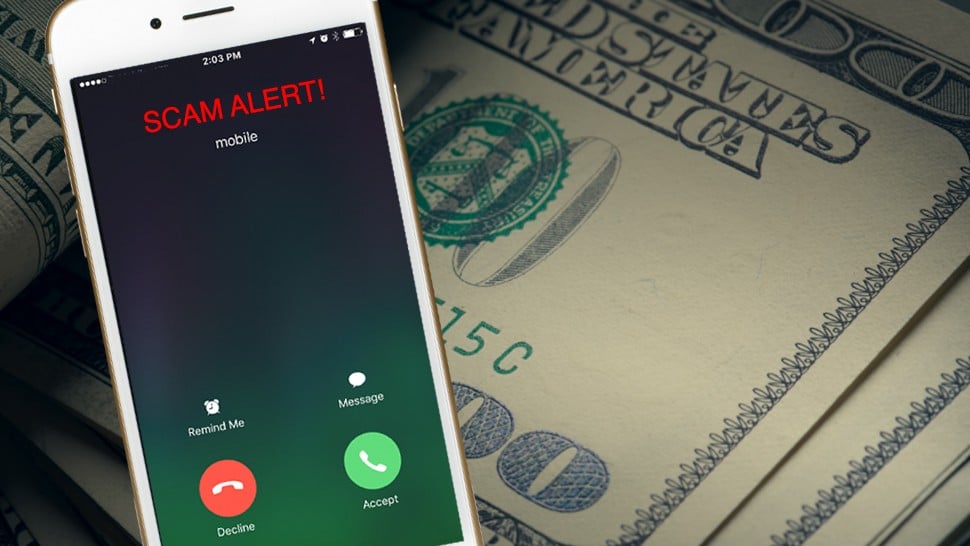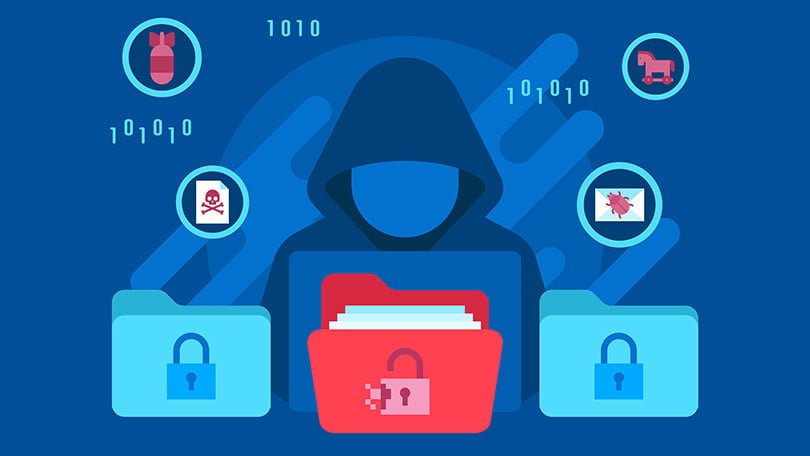Son of a biscuit, for everyone’s safety I will cover the safety first to avoid the most common cryptocurrency scams.
Afraid of cryptocurrency scams? ε=ε=(っ*´□`)っ Well, cryptocurrencies are a bit more for techy guys and yep complicated. New users are baffled on how cryptocurrency works, which makes them an ideal target for cybercriminals, scammers, and bad dudes.
Be that as it may, with a tad of skill, sound judgement and some (*spoiler alert) common sense, you can do a lot to protect yourself against these cryptocurrency scams. (๑•̀ㅂ•́)و✧
I will guide you below on how to be safe, cautious and to know what and how to avoid these scams.
Watch for Cryptocurrency Scams News!
As strong believers in blockchain technologies, Nate Whitehill and Matthew Blancarte, Seattle-based technology entrepreneurs, envisioned a more streamlined way to get a glimpse of the cryptocurrency universe. These two guys founded CryptoSlate – the front page of crypto.
CryptoSlate has a page for all the latest cryptocurrency scams so make sure to check some on their scam story news. These are the latest news about cryptocurrency scams so at least you could check before you dive into crypto-related transactions.
Be prepared and check the news!
Before everything else: How to detect common cryptocurrency scams

Having mixed feelings about a cryptocurrency site if it’s a scam or not? Your gut telling something weird about it?
Read these guidelines carefully to help sort legitimate platforms from those crypto scams!
- Does the website address have https in it (like https://www.moneyformybeer.com)? If the site url begins with “http” instead of “https,” the information (for example password or credit card numbers) is not secure when sent to the site.
- Do you see an image of a padlock in the address bar? This means that a website is secure. But to make really sure, also check if the certificate is valid.
- Does the website’s address have any noticeable spelling mistakes or errors? If so, there is a high chance that it could be fake. Don’t enter any data here, the site is imitating your favorite website and is stealing your information.
- Does the site include bad sentence structure, wrong grammars or spelling errors? If it does, this doesn’t necessarily mean a scam, but it does tell, you must proceed with caution.
- Does the site guarantee strangely exceptional yields? (For instance, does it guarantee you’ll have the option to twofold your investment?) This should raise a major warning and is a typical marker of a scam.
- Is there an “About Us” page? Does it give any insights regarding where the organization is enrolled? In the event that there’s next to zero data about who the organization is and what it does, you could be dealing with a scam.
- Do authentic, legitimate sites link to this site? This could show that the site is trusted and regarded.
- What do other users say about the website? Are there any negative reviews and, if so, what do they say? The crypto community is usually pretty quick to spread the word about scams.
- Who is the enrolled owner of a domain or website? Is the owner hiding behind private registration? Has the domain been enlisted for less than six months? (You can find this information by searching for the platform’s URL registration details on a site like WHOis.net). The more data you can discover about the people/organization behind a site, the better.
- Is there something else about the site that raises warnings or just appears to be unrealistic? In the event that there’s something that simply doesn’t appear to be correct, trust your gut.
Here Are 7 Most Common Cryptocurrency Scams You Must Be Aware Of
We have compiled a very detailed list of these cryptocurrency scams. Read below to know more about what they are and the ways on how to avoid them.
Scam 1: Phishing

One of the common cryptocurrency scams on the list is one that you may already well be familiar with. As it’s widely used to target customers from major reputable companies.
This type of scam is known as “phishing“, whereas you will receive an email that looks very neat. And convincing enough, disguising as a major trustworthy company. Well, in our case from crypto exchange sites or wallet providers. This email contains a link that takes you to a site that looks almost identical to the exchange or wallet you usually use but is actually a scam site.
Once you enter your account details on this look-alike page (from your real provider), the scammers have everything they need to log in to your real account and steal your crypto funds.
How to avoid phishing scams:
- Always double-check URLs (check if its on https) to make sure you’re visiting the real website.
- Double-check links on your email before clicking it (even if the email looks like from your trusted provider) – better be safe than sorry.
- Never share your private key to anyone, even your family and friends.
Scam 2: Fraud exchanges and cryptocurrency wallets

The second on our common cryptocurrency scams list. (Be vigilant on these)
Similar to phishing scams, keep an eye out for fake bitcoin exchanges. They might walk and talk like a reputable exchange, but they’re merely a front to separate consumers from their hard-earned cash.
These platforms pressure users into creating an account and depositing funds, perhaps even offering “bonuses” to those who deposit larger amounts. Some will entice users with promotional offers that sound too good to be true. But once they have your money these platforms might charge ridiculously high fees, make it very difficult to withdraw funds or simply steal your deposit altogether.
Other scammers have turned their attention to creating quite sophisticated fake wallet apps that, once downloaded to a user’s smartphone, can be used to steal critical account details. These apps have even made it into official, legitimate app stores like Google Play, so it pays to do your research before downloading anything to your phone.
How to avoid fake exchange and fake wallet scams:
- Stick with well-known and popular exchanges (there is safety in numbers).
- Thoroughly research any exchange or wallet before creating an account — who is the team behind the exchange or wallet? Do you know where the company registered? Are there reliable reviews from other users confirming its legitimacy?
- Don’t let yourself be pressured into depositing funds or providing any personal information.
- Don’t just randomly pick a wallet from the app store — only download apps and software from legitimate wallet providers and exchanges.
Scam 3: Old-school scams

Cryptocurrency may be based on new technology, but there are still plenty of scammers using old tricks to fraud unwitting consumers.
The classic example of this is an unsolicited phone call or email from someone claiming to be with the IRS. This fictional tax man will try to convince you that you owe the IRS money and you’ll be facing legal action if you don’t transfer them a certain amount of bitcoin as soon as possible.
The tried-and-tested “Nigerian prince” scam has also migrated into the world of cryptocurrency. So if you’re ever contacted out of the blue by someone overseas promising you a share in a large sum of digital currency if you help them transfer funds out of their own country, use your common sense and recognize it for the scam it is.
How to avoid old-school scams:
- Use your common sense.
- Don’t trust unsolicited emails or phone calls.
Scam 4: Fraudulent ICOs

Seduced by the astronomical price rises bitcoin has experienced since its inception, many everyday consumers venture into the world of cryptocurrency looking for the next big thing. After all, if “the next bitcoin” ever actually arrives, getting in at the ground floor could see early-adopters earn a fortune.
And if you want to get in on the ground floor, the easiest option for the average person is to buy coins or tokens in an ICO. There’s a huge appetite for new digital currencies — in the first half of 2018 alone, ICOs raised a total of $11.69 billion — and with many new buyers having limited knowledge of how the crypto industry works, it’s the perfect breeding ground for scammers.
How to avoid fraudulent ICOs:
- Thoroughly research any ICO before buying in. Look at the team behind the project, its white paper, the purpose of the currency, the tech behind it and the specifics of the token sale.
Scam 5: Ponzi or pyramid schemes

A Ponzi scheme is a simple but alarmingly effective scam that lures in new investors with the promise of unusually high returns. Here’s how it works: a promoter convinces people to invest in their scheme. These initial investors receive what they believe to be returns, but are actually payouts from the money deposited by newer investors. Now satisfied that the scheme is legit, those investors who received payouts pump more of their money into the scheme and encourage others to do the same.
Sooner or later, the scheme collapses when the promoter runs off with the money or it becomes too difficult to lure new investors. These types of pyramid schemes are nothing new and can be easy to spot, but that hasn’t stopped some crypto buyers from being scammed in a handful of high-profile incidents.
How to avoid Ponzi/pyramid schemes:
- Look out for cryptocurrency projects that encourage you to recruit new investors to enjoy bigger profits.
- Never trust a scheme that promises returns that sound too good to be true.
Scam 6: Malware

Malware has long been a weapon in the arsenal of online scammers. But thanks to the complicated and highly technical nature of cryptocurrencies, much of which isn’t well understood by most people, malware now poses an even bigger threat.
Rather than stealing credit card and bank account details, crypto-related malware is designed to get access to your web wallet and drain your account, monitor the Windows clipboard for cryptocurrency addresses and replace your legitimate address with an address belonging to a scammer, or even infect your computer with a cryptocurrency miner.
How to avoid common cryptocurrency malware scams:
- Update your antivirus software regularly to protect yourself against malware.
- Never download and install programs unless you’re 100% sure they’re from a reputable, legitimate provider.
- Don’t open suspicious attachments.
Scam 7: Mining scams

Cloud mining allows you to mine cryptocurrencies like bitcoin. This is without having to purchase the expensive hardware required to do so. There are several legitimate cloud mining services that let users rent server space to mine for coins at a set rate.
However, there are also plenty of cloud mining scams out there. Some promise astronomical (and implausible) returns and fail to disclose a range of hidden fees. while others are fronts for Ponzi scams and are simply designed to part you from your money.
How to avoid common cryptocurrency mining scams:
- Thoroughly research any cloud mining operation before signing up. Does it use https? Does it have a public mining address? How long has it been in business? Can you find any legitimate reviews from other users? Does the site have a registered domain name? Can the company provide proof of equipment?
- Be extremely wary of companies that “guarantee” profit.
Simple tips to help you stay safe in the crypto world
The crypto world is exciting and full of potential, but it’s also a prime target for scammers and cybercriminals. To stay safe and protect your investments, it’s crucial to take some simple steps to secure your accounts and wallets. Here are five tips to help you get started.
Tip 1: Use 2-factor authentication
Enable two-factor authentication (2FA) on your crypto wallets and exchanges to add an extra layer of security. With 2FA, you’ll need to provide a secondary code or password in addition to your login credentials, making it much harder for hackers to access your accounts.
Tip 2: Use a cold wallet
A “hot” wallet is one that’s connected to the Internet, while a “cold” wallet is one that’s held offline. Storing your crypto offline in a physical cold wallet is usually considered to be a much safer option than using an online wallet.
Tip 3: Stick with established providers
Avoid new and untested platforms. Stick with established and reputable exchanges and wallets that have a proven track record of security and reliability. Keep your PC protected against malware by using antivirus software and keeping it up to date.
Tip 4: Always double-check addresses
Scammers often use phishing attacks to trick you into giving away your login credentials or sending funds to the wrong address. Always double-check the URL and look for the https and “secure” lock symbol in the URL bar before entering any sensitive information or making any transactions.
Your private keys are the only way to access your crypto holdings, so never share them with anyone, even if they claim to be a support representative or a friend. Keep your private keys safe and secure, preferably offline or in a hardware wallet.
Tip 6: Keep your software up to date
Hackers often exploit vulnerabilities in outdated software to gain access to your computer or wallet. Make sure to keep your operating system, browser, and crypto software up to date with the latest security patches and updates. You can also consider using a VPN or firewall to add an extra layer of protection.
Tip 7: Diversify your portfolio
Investing in a variety of cryptocurrencies and assets can help minimize your risk of losing everything in case of a market crash or a single coin’s failure. Consider diversifying your portfolio by investing in different coins, tokens, and assets with different risk profiles and market capitalizations.
Tip 8: Stay informed and be cautious
The crypto world is constantly evolving, and new threats and opportunities emerge all the time. Stay informed by following reputable news sources and forums, and be cautious when it comes to investing, trading, or sharing your personal information online. If something seems too good to be true or too risky, it probably is. Take your time, do your research, and always exercise caution and common sense.
Tip 9: Use a strong password and enable auto-logoff
Choose a strong and unique password for your crypto accounts and wallets, and enable auto-logoff or session timeouts to ensure that your accounts are automatically logged out after a certain period of inactivity. This can help prevent unauthorized access in case you forget to log out or leave your device unattended.
Tip 10: Backup your wallet and recovery phrase
Crypto wallets and exchanges can be vulnerable to hacks, data breaches, and other types of security threats. To protect your funds, make sure to backup your wallet and recovery phrase in a safe and secure location. This will allow you to recover your funds and accounts in case your wallet or device is lost, stolen, or compromised.
Final Word
Regrettably, unsecured systems can be exploited by malicious actors to steal or mine cryptocurrencies. It’s a harsh reality, and it’s important to approach the world of crypto with caution and mindfulness. However, don’t let fear consume you. Stay calm, stay informed, and stay vigilant.
I hope that my post above on the most common cryptocurrency scams can provide you with some helpful insights and tips to help you navigate this complex and rapidly-evolving landscape.
Also Read: 11 Reasons Why Improving Website Speed Matters
It is your money so protect it. You can do this.
To know more about me check my about page. Moreover, to see more content like this check the security section of my blog.
Cheers!

Chief Editor and Website Owner.
A software dude and the website owner of Money For My Beer. The site where the best people stories and legit money making online is compiled.


Unfortunately, with the popularity of cryptocurrency has skyrocketed so much that it has given rise to a lot of crypto scams as well. You must be already familiar with a lot of them promising high returns, quick turnaround time, extremely minuscule amounts of commission and fake trading bots. Whenever you see a website promoting such dubious activities, it is better to stay away from them if you want to save your money.
Yes, you really got it mate. I encourage everyone to stay safe, and follow the best safety guidelines in dealing with these kind of sites. I have listed some guides above and I really do hope that it will reach someone to be safe online.
I appreciate the comment, let’s help the world by spreading safety tips and guidelines.